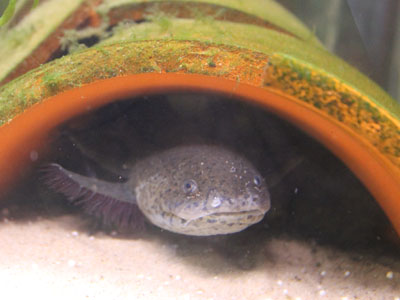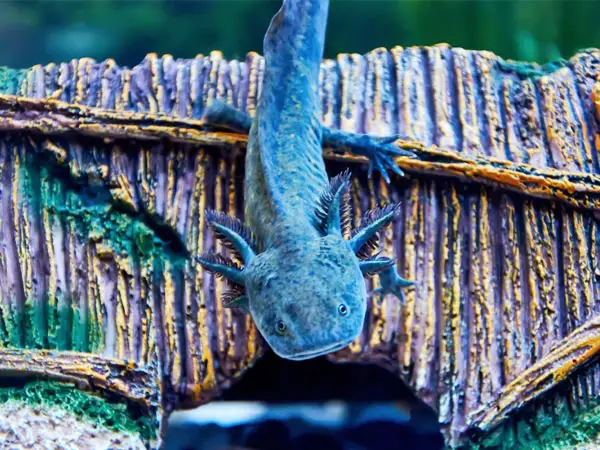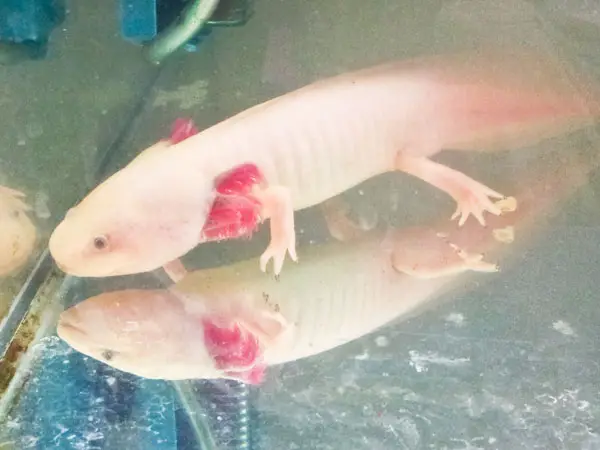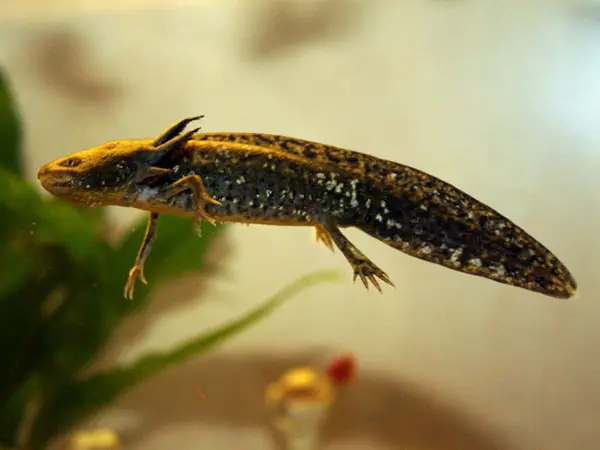Axolotls are well-known of their rapid regeneration capability. They are also one of the most cancer resistant creatures on the World.
The chances of such a salamander getting cancer are very slim. They are also known as Mexican salamanders and they are able to regrow many of their organs, including their brain.
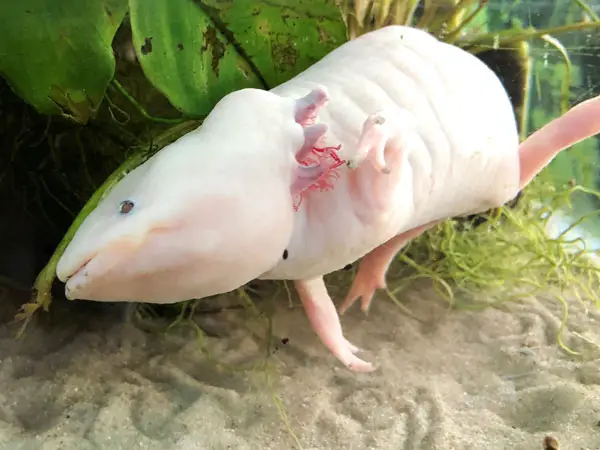
According to scientific research, an Axolotl is able to regrow a limb more than 100 times. There is literally not a single issue replacing one of their organs during an organ transplant. It is a routine operation with almost a 100 percent success rate.
There are on-going researches learning about the beneficial effects of Axolotl eggs that can prevent cancer growth.
The first research on this was done by the University of Nottingham. They have found out that such eggs can save people that suffer from breast cancer.
Unfortunately, this salamander species is endangered right now. Mexico City is working on measures that can help preserve their natural habitats.
Axolotls and Cancer Research
Compared to mammals, Axolotls are 1,000 times more resistant to cancer. Since they are so miraculously resistant, scientists use them in cancer researches all the time.
In fact, salamanders are considered one of the oldest laboratory animals.
They are the crucial elements of cancer, aging, scarless wound healing and stem cell biology research.
When studying cancer, the most important thing about Axolotls is their regenerative ability. They can rapidly regenerate both tissues and complex organs in the body.
These organs include limbs, heart, brain, spinal cord and tail. Their cells are incredibly resistant to tumor formation.
What makes this significant for human research is that various signaling pathways and genes are conserved between humans and these salamanders.
Their genome also encodes a similar number of proteins as us, humans. When it comes to taking care of these animals in a laboratory, it is very straightforward.
It is easy to breed them and to set up an aquarium for them as well.
Can Axolotls Die of Cancer?
The fact that they are resistant doesn’t mean that there isn’t a slight chance of them developing cancer. They surely can in certain conditions.
As a result, they can also develop tumors that can be fatal. However, this is extremely rare.
Their body works like as if it was made to destroy tumors. When a slight scar occurs or cancer cells start to form, the cells of an Axolotl instantly respond.
Most likely, any form of cancer is simply going to disappear in their body even if it appears for some reason.
Can Axolotls Get Sick?
Axolotls can get sick just like any other pet that people usually keep at home. There is a wide range of diseases that they can get if their environment is not clean or safe enough.
These salamanders are often victims of ammonia poisoning, parasites, impaction, infections and hyperthermia.
Axolotls are different from aquarium fish when it comes to being sick. They are usually quite inactive even if they are healthy, while fish are typically inactive when they are sick.
These salamanders are active during the night when there is no need to hide from the light.
You can already suspect that your Axolotl is sick if you notice certain signs.
These include skin lesions, loss of appetite, injuries on its body, jaundice, deterioration and loss of balance. Furthermore, juvenile Axolotls are not going to grow as much while being sick.
It might be difficult to determine the type of disease your pet is suffering from. If you can’t identify the illness, it is best to seek help from a veterinarian that has experience with salamanders.
It might be tempting to use remedies that are made for aquarium fish.
However, many of these can be harmful for Axolotls. It is best to consult an expert before you give any of those to your pet.
How Long do Axolotls Live?
The typical Axolotl lives up to 10-15 years. This depends on how well you treat them, their diet, water conditions and other environmental factors.
If you are extremely lucky and take good care of your Axolotl, it can even live as long as 20 years!
This makes them one of the longest living creatures in the amphibian family. The reason why some of them can live more than 15 years is because it is much safer to live in captivity.
At home, all the natural threats that are typically around them out in the wild are eliminated.
In the aquarium, there is no danger to face. They rely solely on your special care and attention.
You need to set up a tank for them in a specific manner and feed them a healthy and nutritious diet. The other thing that ensures a long lifespan for them is to keep the water waste-free with a good filter.
The way you handle them is also important because Axolotls can be rather fragile. And perhaps the most important thing to note is that you shouldn’t take it out of the aquarium water!
When it comes to keeping your salamander healthy and thriving, the little details are the most important.
Conclusion
We can conclude that the chances of your Axolotl getting cancer are extremely slim.
Instead of cancer killing your pet, it will be much more likely that your pet is going to kill the cancer within. It is even more likely that such tumors and cancerous cells won’t even appear.
It is no wonder they are so popular nowadays in cancer research. There is a lot of potential in these little salamanders when it comes to fighting cancer.
But even despite their amazing regeneration capability, they can still get plenty of diseases. In terms of diseases, they are just as vulnerable as any other pet.
Therefore, you should do your best at providing a healthy diet and setting up a tank that meets their requirements.
All they need is clean water, protein-rich foods and enough space to move around in the tank. Follow our advice and your Axolotl is surely going to live for more than 15 years!

